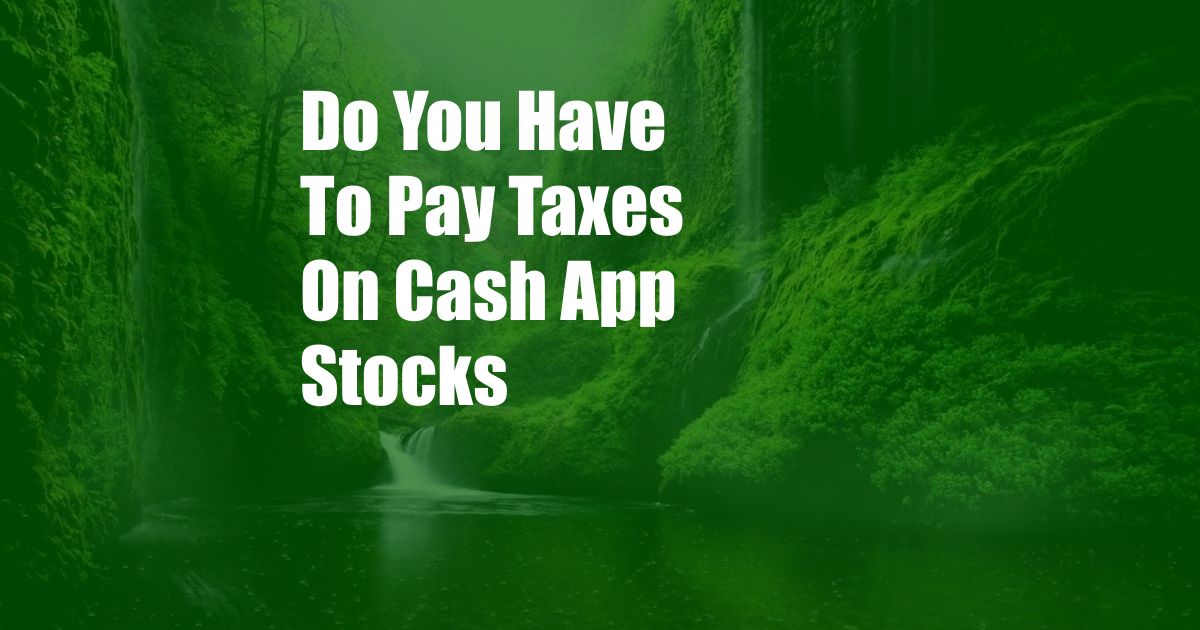
Do You Have to Pay Taxes on Cash App Stocks?
The rise of digital payments and investing platforms has made it easier than ever for individuals to manage their finances and invest in stocks. Cash App, a popular mobile payment app, has recently introduced the ability to purchase and sell stocks. This has raised the question of whether users have to pay taxes on their Cash App stock earnings.
The answer is a resounding yes. Like any other stock investments, earnings from Cash App stocks are taxable. The Internal Revenue Service (IRS) considers stock sales as capital gains or losses, and these are subject to taxation based on the individual’s income tax bracket.
Tax Treatment of Cash App Stock Earnings
When you sell a Cash App stock, the difference between the sale price and the purchase price determines your capital gain or loss. If you sell a stock for a profit, you will incur a capital gain. Conversely, if you sell a stock at a loss, you will incur a capital loss.
Capital gains and losses are categorized into two types: short-term and long-term. Short-term capital gains and losses are incurred when a stock is held for less than one year. Long-term capital gains and losses are incurred when a stock is held for one year or longer. The tax rates for each type are different.
Short-term capital gains are taxed at the same rate as your ordinary income tax bracket. Long-term capital gains, on the other hand, are taxed at a lower rate. For most individuals, the long-term capital gains tax rate is 15%. However, if your income is above a certain threshold, you may be subject to a higher long-term capital gains tax rate.
Reporting Cash App Stock Earnings
When you file your tax return, you must report your Cash App stock earnings. You will need to include the following information:
- The date you sold the stock
- The number of shares you sold
- The sale price
- The purchase price
- Your cost basis (the purchase price and any related expenses)
This information can be found on your Cash App tax documents. Alternatively, you can download your transaction history from the Cash App website or mobile app.
Tax Forms
The IRS uses different tax forms to report capital gains and losses. For short-term capital gains and losses, you will need to use Form 1040, Schedule D. For long-term capital gains and losses, you will need to use Form 8949 and Schedule D. If you have both short-term and long-term capital gains and losses, you will need to file both forms.
Conclusion
In summary, yes, you do have to pay taxes on Cash App stock earnings. Whether you incur capital gains or losses, this income is taxable. It is crucial to report your earnings accurately on your tax return to avoid any penalties. By following the guidance provided above, you can ensure compliance with the IRS regulations and maximize your tax savings.
Are you interested in learning more about taxes on Cash App investments? If so, please refer to the resources below for additional information and guidance.